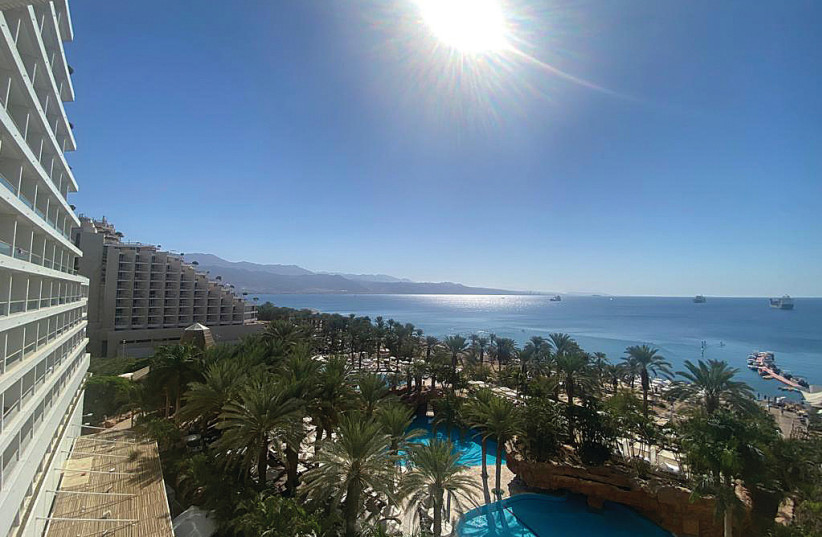How pampering and safe is staying in hotels globally nowadays? When the pandemic erupted, what happened to hygiene practices created to keep guests relaxed, expecting their rooms to be spotless and free of germs?
Apparently, many hotels around the globe had to cut housekeeping services to reduce contact between guests and staff entering their rooms. Ensuring a safe stay, hotels also cut daily housekeeping service. However, it looks like it’s time to get back to normal. Unfortunately, this is not the case. More than two years have passed, and staying in hotel rooms is not the same.
Numerous hotel chains have made daily housekeeping optional in the US. It looks like this privileged service is performed there only upon request.
“Whether out of necessity due to staffing shortages, out of respect for social distancing or perhaps just to save money, one of the primary amenities that sets a hotel apart from your home, daily housekeeping, is disappearing,” the Associated Press reported recently. “Marriott’s policies vary by property, but housekeeping is usually offered only upon request, with all rooms cleaned automatically every sixth night. Walt Disney World reduced service to light housekeeping every other day.”
Hyatt, for example, reports on its home page that full housekeeping service is available after every third night in many of its hotels in America, Europe, Africa, the Middle East and Southwest Asia – including Grand Hyatt and Hyatt hotels.

Does this mean farewell to paradise vacations in our favorite pampering hotels, when the pandemic is supposedly beaten?
After dismissing countless employees during the pandemic, hotels now find that a lot of their loyal team members are not coming back. A staff shortage is evident, and while countries open to travelers, hotels are finding it challenging to service them with fewer employees. This labor shortage problem isn’t going away anytime soon. The housekeeping department employs the largest workforce in most hotels, and when there is a shortage of staff, service is in serious jeopardy. The consequences might be the butterfly effect of the lodging sector.
IS ISRAEL’S hospitality industry in similar danger?
The encouraging news that tourists from all countries are able to travel to Israel is music to the ears of local hotel owners and management. This coming Passover may help to compensate for two disastrous years. Our hoteliers are apparently confident but cautious.
“Our daily housekeeping services continue as normal, and in our exclusive hotels we continue with the daily pampering turndown service [the preparation of a room for a guest to sleep in by slightly turning back the comforter on the bed and turning down the lights],” says Lior Raviv, chief executive officer of Isrotel Ltd., which operates 21 hotels in Israel.
“Manpower is the No. 1 challenge of hotels, as a shortage of employees becomes a pandemic by itself. I believe that in the US the crisis is tremendously significant, and it affects hotel operations. I am aware that numerous hotels in Israel may find difficulties to deliver quality service, and their solution is to limit occupancy to 70% in order to meet expectations. Luckily, in Isrotel we are not in this situation,” he says.
Even with the boutique hotels sector in Israel, it looks like operations are going smoothly.
“Daily housekeeping is available in our hotels, which includes daily refreshing and cleaning, as in the pre-pandemic periods, and on every other day, if needed, the service is even more generous,” says Uri Kronkop, head of marketing for Atlas Hotels, with 16 hotels located in Jerusalem, Tel Aviv and Eilat.
Haim Douk, head of marketing for Prima Hotels, with 14 hotels nationally, assures that the hotels provide daily cleaning and have high sanitation standards.
Ofer Hayut, CEO of the Olive and Rimonim hotel chains was surprised to hear about the cleaning difficulties in the US, but assures that daily cleaning and quality hygiene are guaranteed at the chains’ 10 hotels all over the country.
Israeli tourism expert Joseph Fischer, with 40 years of lodging experience working for leading international brands, is realistic. “Around the Western world, skilled personnel working in hotels has become a major issue. In Israel it’s even more acute, as housekeeping staff are overworked and in most cases underpaid, and potential employees simply avoid choosing to work in hotels today.
“In order to be able to have decent service in hotels here and the many planned in the future, Israel needs to liberalize its labor laws and allow foreign labor forces with work permits to come here.”
Passover is also a time when heavy queues are anticipated at Ben-Gurion Airport due to personnel shortages and the continuing rigorous testing for incoming passengers.
Expecting luxury service in hotels, which are struggling to keep quality employees to provide adequate levels of service, might be optimistic nowadays.
One thing is certain: In order to be served, you can always ask nicely, with patience, for assistance, while staying in your guest room. Hotel housekeeping employees truly love to serve guests from the bottom of their hearts. This will never change.
The writer is the Travel Flash Tips publisher.
